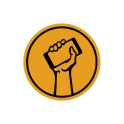Our tour with Helen Joyce, teachers afraid of opinions, threats to local democracy & more!
When you support the Free Speech Union, you’re not just ensuring we can keep the lights on, you’re ensuring that YOU get to speak freely.
Whether it’s your right to discuss a case before a tribunal, your right to decide who to vote for, your right to hold an opinion – no matter how outrageous it might be to some – we've got you covered across our four workstreams:
Cases ✅ Campaigns ✅ Content ✅ and Coaching ✅
Helen Joyce to tour NZ with us!
First up today... Coaching! ✅ We wouldn’t be doing our jobs if we weren’t equipping you to defend free speech in your context.
One way we do this is by bringing world-class speakers to New Zealand, and our next tour is no exception.
Helen joined The Economist in 2005, holding senior editorial roles. Her 2021 book Trans: When Ideology Meets Reality was a Sunday Times bestseller. Since 2022, she has been Director of Advocacy at Sex Matters, a UK campaign group focused on sex-based rights.
Helen’s tour couldn’t be timelier. The Law Commission’s recent Ia Tangata report recommends changes to the Human Rights Act that would seriously affect New Zealanders’ ability to speak about sex and gender, particularly in workplaces, schools, and healthcare. Helen is an expert on free speech in debates over gender ideology and sex-based rights.
We look forward to meeting with policymakers, politicians, journalists, academics, and of course you!
Tribunal imposes sweeping restrictions
And now, for a Case ✅. Last weekend we told you about the case between Lesbian Action for Visibility in Aotearoa (LAVA) and the Wellington Pride Festival. We weren’t able to tell you more about it due to limitations imposed by the Human Rights Review Tribunal.
Well, thankfully, accredited media were able to, so you can read this account by Jenny Ruth here.
But... why are you not trusted to discuss it?
As Jenny writes, “The idea that reporting on what a witness said, whether you’re a journalist or not, could be construed as an attempt to “harass and attack” that witness or that such reporting “constitutes witness intimidation” is just extraordinary.”
This is just one of many cases in our country where restrictions have been imposed. Limiting your ability to discuss matters of public interest is not what open justice looks like.
Trust in our institutions will only decrease if we continue to let this stand, which we won’t.
We’re watching this case closely. Authorities need to stop weaponising their power to stop you speaking.
‘Extremist’ opinions in schools? Or ideas teachers disagree with?
Did you read in the news what the Post Primary Teachers' Association (PPTA) is worried about? Kids' opinions. And they’re calling on the government to intervene.
It’s not our job to tell you if the opinions the PPTA is concerned about are right or wrong (I’ll let you decide for yourself). But government intervention on... opinions?!
Newstalk ZB came to us for comment (Content! ✅) – you can hear Jillaine discuss this with Ryan Bridge here.
How are children meant to learn critical thinking skills if different opinions cannot be discussed in the classroom?
We don’t deny that teachers have an incredibly tough job. But suppressing debate and opinions that some teachers don’t like is not the way forward.
Speech in local government under threat
Just in the past week, two stories have arisen that show just how much local democracy is at threat, which is why one of our Campaigns (✅!) to ensure the Local Government Commission doesn't impose an ambiguous censorial code across the country.
1️⃣ The South Waikato District Council moved a policy that will undoubtedly be weaponised against dissenting views and criticism from the public. It included subjective and vague terms like "irrational”, "nonsensical”, “inflammatory", “defamatory”, “degrading” and “insulting”.
Politics and local democracy rely on debate. The Council should not try to protect itself from scrutiny.
2️⃣ Meanwhile, local Takapuna candidate Karin Horen was part of the ticket, ‘The Fresh Approach’, but was removed by the group after a meeting with the Auckland Council about heightened safety concerns, negative messages, and vandalised signs.
Horen was targeted because she is Jewish. Too often, we’ve seen the Thug’s Veto used to cancel events and shut down ideas. But bowing to the bullies is not the way forward!
If we allow mob pressure to dictate who can and can’t run for local bodies in New Zealand, then it won’t be voters who decide who represents them.
Want to know which local candidates stand for free speech in your city? Read our Local Government Council Candidate Report here to make an informed vote!
This isn't event to mention the fact the Education and Training Amendment Bill (No 2) was backed by the Select Committee, with recommendations to adopt most of our suggestions to restore campuses to places of robust debate. 📢
We also engaged constructively with the Ministry of Justice team considering reform to our terrorism laws in Wellington. They were aware of our concerns and agreed that Kiwis’ speech rights must be at the forefront when considering reform like this. Hear Jillaine's update here!
As you can see, we’re working hard and ticking all the Cases, Campaign, Content, and Coaching boxes to ensure you can speak freely. ✅✅✅✅
This is only possible with your support. 💪
Nadia Braddon-Parsons | Free Speech Union








